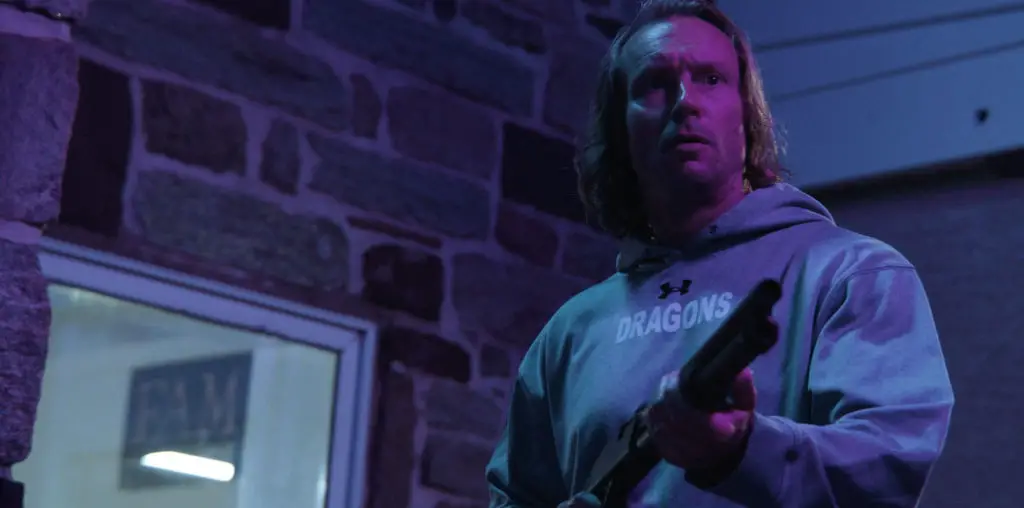
Most people never heard of Father Mychal Judge, a Franciscan priest and a chaplain with the New York Fire Department, prior to the 9/11 attacks. But the news photograph of the dead Father Mychal being carried by firefighters from the wreckage of the World Trade Center created an iconic image that still resonates.
But who was Father Mychal? Glenn Holsten’s “Saint of 9/11″ discovers a complex, often contradictory individual who embodied the best elements of Christian charity with some genuinely human shortcomings. If the film itself is less than satisfactory in many elements, it nonetheless offers a touching tribute to a unique soul.
The Brooklyn-born son of Irish immigrants, Father Mychal could’ve enjoyed the relatively easy worlds of academia and suburban parish priest duties. In the early 1980s, however, he sought transfer to New York City and worked with the people on the furthest edges of society: the homeless, the destitute, and AIDS patients. The latter were especially hard-hit, as they were being treated with uncommon cruelty by a medical profession who were clueless to their disease and to a society that viewed them with contempt.
Father Mychal also enjoyed rubbing shoulders with power brokers, thanks in large part to his work as a Fire Department chaplain. Obviously ignoring the Biblical warnings on pride and vanity, he clearly loved showing off his Fire Department uniform and being on a first-name basis with New York’s power elite (he also was a guest in the Clinton White House, although this is barely cited in the film).
Yet in his own life, Father Mychal had issues that he may or may not have totally resolved. A long spell of alcoholism led him to Alcoholics Anonymous, and he later became a lifelong advocate of bringing people to AA. Unfortunately, the film barely touches on the exact nature of Father Mychal’s drinking problem – there is a brief mention of his fondness for mixing liqueurs (even for breakfast), but details of his problems, particularly the length of his alcoholism, are absent.
Even more significant was his homosexuality. Father Mychal’s ability to reach out to gay Catholics at a time when the Vatican was on a homophobic tear endeared him to the gay community, and clearly this would not have occurred had he not been comfortable with his sexuality. Yet at the same time, he remained deeply closeted during his period as a Fire Department chaplain, fearing that the firefighters would resent having a gay man in this midst. This seeming contradiction raises more questions than necessary, and “Saint of 9/11″ is evasive in answering whether Father Mychal was ever sexually active (either before the priesthood or while he was a priest). The film also ignores how Father Mychal’s homosexuality has continued to create a sore point with both the Fire Department and the Franciscans, who do not wish to openly recognize that aspect of his personality when honoring his legacy.
There is only a finite amount of video footage and photographs of Father Mychal (including the last-known footage of him alive, taken in the lobby of the World Trade Center before his death. In order to pad the “Saint of 9/11″ to a feature-length running time, there are endless travelogue-worthy shots of New York and the various locations where Father Mychal visited in his life (including rural Ireland, Canterbury and Lourdes). There are also plenty of shots of the rolling ocean waves. Admittedly, this gets monotonous (how many times can you see the Brooklyn Bridge in silhouette?) and Ian McKellen’s plummy narration only makes the subject more melodramatic than it needs to be.
If the film “Saint of 9/11″ is less than special, the same cannot be said about Father Mychal. The film is packed with many people of all social levels (including former FDNY Commissioner Tom Van Essen and actor/writer Malachy McCourt) who speak lovingly of his wit, warmth, humanity and spirit. Father Mychal’s impression on the world around him was without precedent, and hearing so many people speak so lovingly of him helps overcome the wobbly nature of this well-intended but flawed tribute.
